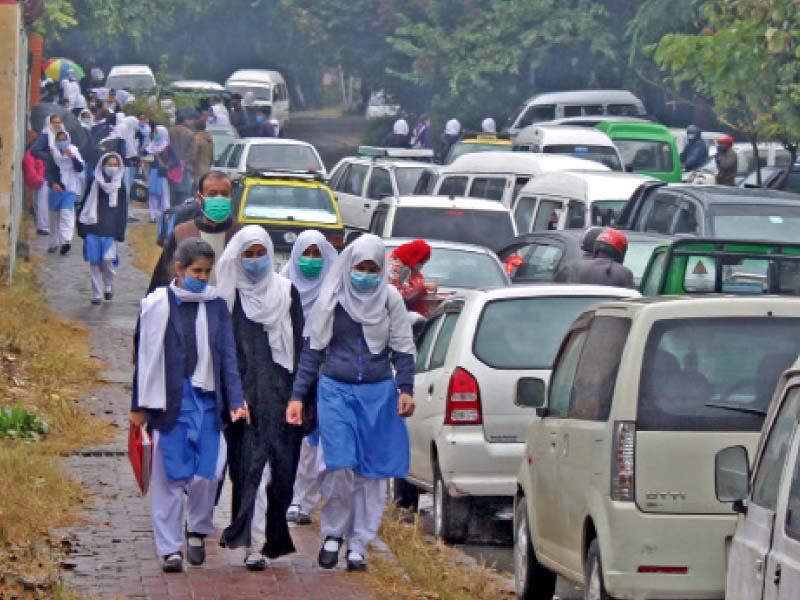
Harsh lessons: After a year of suffering, life seeks normalcy amid pandemic
People still recoiling from economic losses caused by coronavirus
KARACHI:
In Karachi’s lower middle class neighbourhood, Liaquatabad, 55-year-old Shahnaz Khan fondly recalled the time when her two sons went to work daily and derived decent monthly wages to sustain their household.
Almost a year into the pandemic, Khan’s sons, who provided pick-and-drop service to students, are on the lookout for a substantial means of sustenance.
“Running a school van brought home a salary of Rs 25,000 from each son. Even today, educational institutions are closed” she said ruefully.
The housewife laments how the virus and its uncontrollable spread has sent her family reeling as one of her sons is still unemployed, while the other drives a rickshaw for a measly Rs600 daily wage.
Khan, like millions of others worldwide, is going through a financial crunch and mental stress due to the pandemic.
Regardless of the class structure of a society, the virus outbreak has changed the public’s economic and social attitude, affecting women disproportionately in terms of responsibilities.
Many have voiced similar opinions, stating that the pandemic has caused an irrational and persistent fear of losing their jobs.
The female population, in particular, feels resentful as they have an additional responsibility of handling children who are staying home due to the closure of educational institutions.
Zubeida, a housemaid from Musa Colony, said she is a widow and a mother of two children.
“Due to the coronavirus outbreak, several families forbade me to come to work,” she said in a wary manner.
Raising questions regarding the survival of the people residing in slums, the maid said that the number of houses that employed her dropped from 10 to six.
“How can people living in the slums avoid the virus spread? It is important to arrange food and water supplies first,” she said, adding that Prime Minister Imran Khan initiated the Ehsaas programme for the poor under which she also received money once.
“How can a household survive on Rs12,000 per month?” said Zubeida.
Muhammad Asif, a resident of the Lines area, said the pandemic has led to food shortages.
“For three or four months, I continued to receive 50 per cent of my salary, after which I stopped receiving my salary at all. Many employees were fired,” he shared.
Mohammad Imran, who fixes tyres for a living, said he had to rely on charities to make both ends meet as the pandemic gnawed away at his livelihood.
The virus also significantly reduced the number of students continuing their religious education at madrassahs. Most of the parents said they have dropped out their children as they are unable to pay their fees.
Likewise, teachers were unable to teach at schools and give tuitions in the evening as most of the parents were apprehensive regarding the spread of the disease.
Mohammad Adnan, a grocer, said that because of the virus outbreak, the fate was relatively kinder to grocery businesses.
The shopkeeper also complained about fines imposed by the district administration over the violation of pandemic-related standard operating procedures (SOPs) by buyers.
Beauticians, restaurateurs, tailors, and several other business owners complain of having their work reduced to half owing to the fear of the virus spread.
Most entrepreneurs say that businesses also suffered due to the violation of SOPs, invoking harsher restrictions to stem the spread of the disease.
Associated with the signboards business, Muhammad Kashif Khan opined that it will take nearly two years for the public to somewhat resume or recover their losses incurred by the pandemic.
Published in The Express Tribune, January 4th, 2021.















COMMENTS
Comments are moderated and generally will be posted if they are on-topic and not abusive.
For more information, please see our Comments FAQ